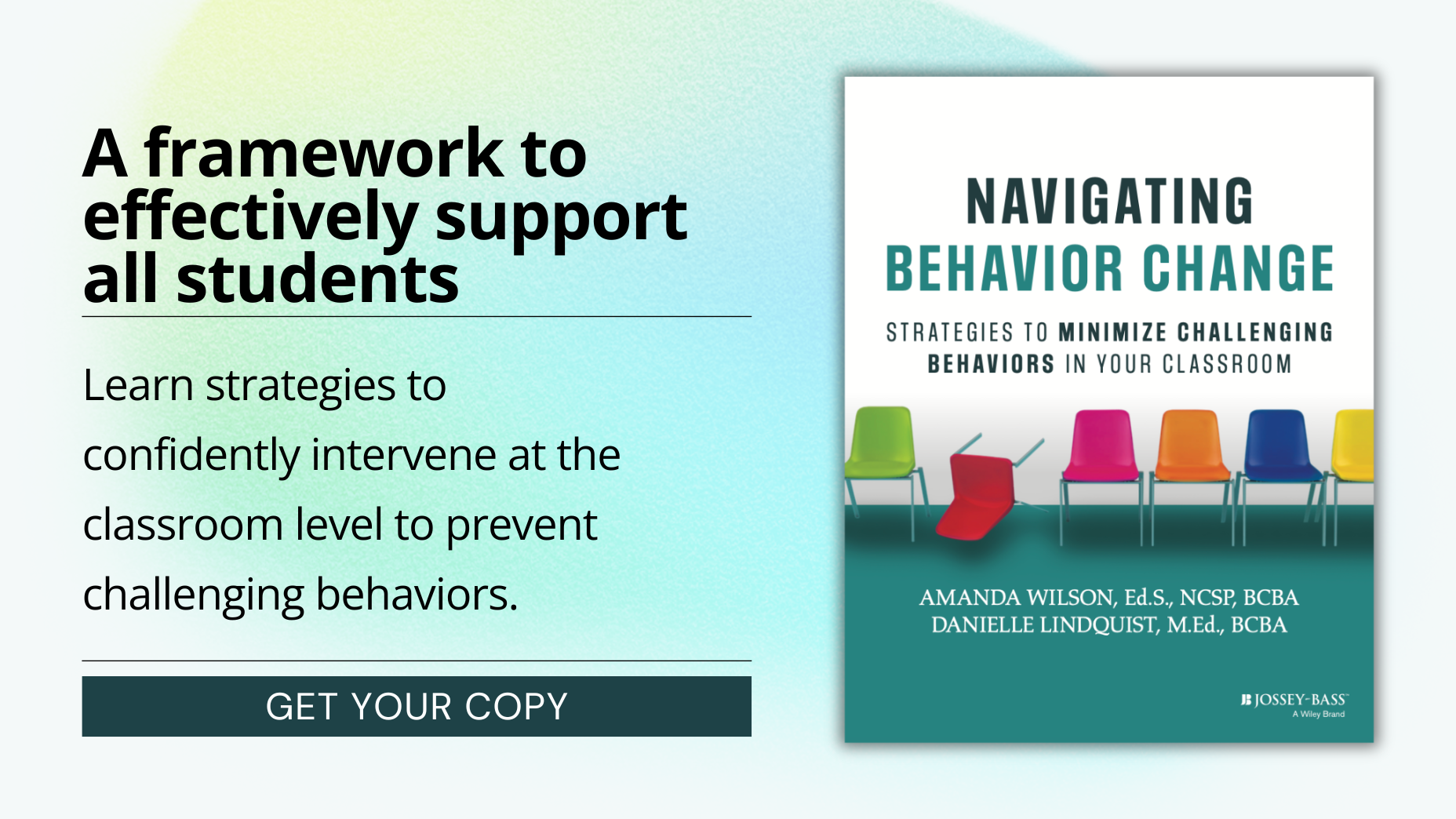Why Writing Lesson Plans Will Help You Tackle Those Behavior and Social Skills

When it comes to lesson plans, we find educators typically you fall into one of the following categories:
1. You are required to hand in weekly lesson plans
2. You are required to hand in monthly/quarterly lesson plans
3. You aren't required to hand them in until the end of the year
4. Crickets...
To break it down even further, we ask you this: Whether you are or are not required to hand in lesson plans, do you use them?
There are endless reasons why you may not use lesson plans when it comes to working with students with challenging behaviors.
- You physically have no time to write them and barely have time for lunch as it is...
- You have tried writing them, but things never go as planed so why bother?
- You haven't found a template that works for your mixed-ability classroom
- Your student casually threw his juice on them so you gave up the fight
Well, if you are misery and love company, we've been there. BUT, we are here to tell you that utilizing some type of lesson plan when trying teach behavioral and social skills will help you more than hinder you.
If you write and actually use your lesson plans, required or not, you deserve a gold star in our book, and here's why:
1. Gets students to independence faster. Students with emotional-behavioral deficits don't have time to waste when it comes to learning coping skills, problem-solving skills, flexibility, and more. All of these skills usually take significant time to teach and if you don't have a roadmap to help you instruct systematically, these things will take longer and longer and to learn - this means, your student is that much farther away from becoming independent.
2. No more guessing. To go along with #1, you aren't having to guess as to what skill or step to teach next because you already have a plan. Having a rough scope and sequence of the skill you are trying to teach will show you where you need to go next with the student if they have mastered the component. If you are trying to figure things out in the moment, your instruction will be far less meaningful and there is a good chance you will miss certain critical steps.
3. You can multiply yourself. With your lesson plan in your mind, only you can instruct that student in that skill. You cannot expect your paraprofessionals to follow the same steps, prompt at the same time, reinforce the same behaviors, or teach in the same way. If you have the social skills lesson down on paper anyone can take that and implement it; it may not be perfect, but there is a higher likelihood of the student grasping onto the concept if your staff are providing instruction in a more meaningful way.
4. Increased student engagement. Ever have a lesson completely flop because you weren't prepared? Yea. This is bound to happen when you have no clue what you are doing and are "winging it." If you or your paras are searching for the objectives, skimming the pages for needed materials, forgetting what questions to ask, or drawing a blank on what skill you should be practicing, dollars to doughnuts your students are going to find something way better to do during that time (and it probably won't be sitting quietly waiting for you to get your act together).
5. Holds you and your team accountable. It happens. Tommy's mother calls your school in late November asking how you are teaching him self-regulation. If you work in special education you NEED to have your ducks in a row at any given moment. You want to be able to show how you are working on IEP goals, PBIS behaviors for increase, reaching independence, etc. Parent's have a right to know whether or not their child is receiving quality education as it relates to social-emotional and behavioral support. Lesson plans do just that.
How to get started when you are already overwhelmed:
- Start with one or two students. Pick your students that require the most behavioral support as they will likely require the most intensive direct instruction in this area.
- Make a lesson plan template that you can use over and over again. Google Drive allows you to copy documents which can be helpful in saving time.
- Start by identifying one skill and breaking it down you can read more about breaking down behavioral skills here.
- Create a road map on your lesson plan template of when you will work on each skill component. For example...
- Monday - Introduce Skill
- Tuesday - Work on discrimination teaching (when to use, when not, how to use, how not, etc.)
- Wednesday - Modeling and role play with teacher
- Thursday - Modeling and role playing the skill with other staff
- Friday - Modeling and role playing the skill with other students
- Use the same soft instructional format each day (Intro, I do, you do, we do, closing)
- Test it out! Go into knowing it won't be perfect and be okay with that. You can make tweaks along the way.
Need help lesson planning for behavioral skills? We can help!




